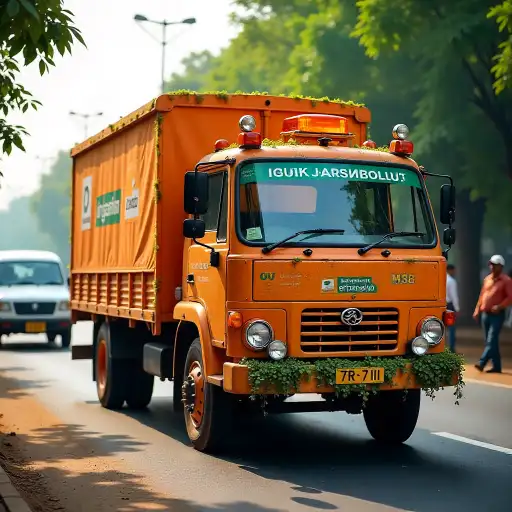Ashok Leyland, part of the Hinduja Group, plans to commercially launch its first hydrogen-powered trucks in India by 2027. Managing Director and CEO Shenu Agarwal confirmed that the technology has matured enough for confident commercial rollout, marking the next major shift in India’s automotive landscape after electric vehicles (EVs).
Advantages of Hydrogen for Transportation
Hydrogen is seen as the cleanest energy form, producing only water as a byproduct. Its high energy density and lighter weight make it ideal for long-distance vehicles, offering up to 50% lower fuel consumption compared to conventional fuels, along with extended driving ranges.

Government Support and Policy Push
The Centre aims to encourage hydrogen adoption in the automotive sector. Under the new GST reform effective September 22, the GST on fuel cell vehicles, including hydrogen-based vehicles, has been reduced from 12% to 5%, providing a strong policy tailwind for manufacturers.
Ashok Leyland’s Clean Mobility Journey
Ashok Leyland entered the EV sector eight years ago with an electric bus and has since expanded to light and heavy-duty electric and LNG trucks. The company is also venturing into manufacturing battery cells for EVs. Agarwal noted that the company has developed alternative powertrains across EV, hydrogen, and LNG, and is now ready to commercialize these technologies.
Strategic Partnerships Driving Innovation
Ashok Leyland has collaborated with Reliance Industries for hydrogen internal combustion engine (H2-ICE) trucks, flagged off by Prime Minister Modi in 2023. In the same year, the Adani Group and Canada’s Ballard Power joined forces with Ashok Leyland to develop fuel cell electric trucks.
National Hydrogen Pilots
Under the National Green Hydrogen Mission, the government has approved five pilot projects for hydrogen use in buses and trucks. This includes 37 vehicles—15 fuel cell and 22 H2-ICE—operating across 10 routes with nine hydrogen refueling stations. With financial support of ₹208 crore from the Centre, these pilots are expected to start within 18–24 months, laying the groundwork for scaling hydrogen mobility in India.
